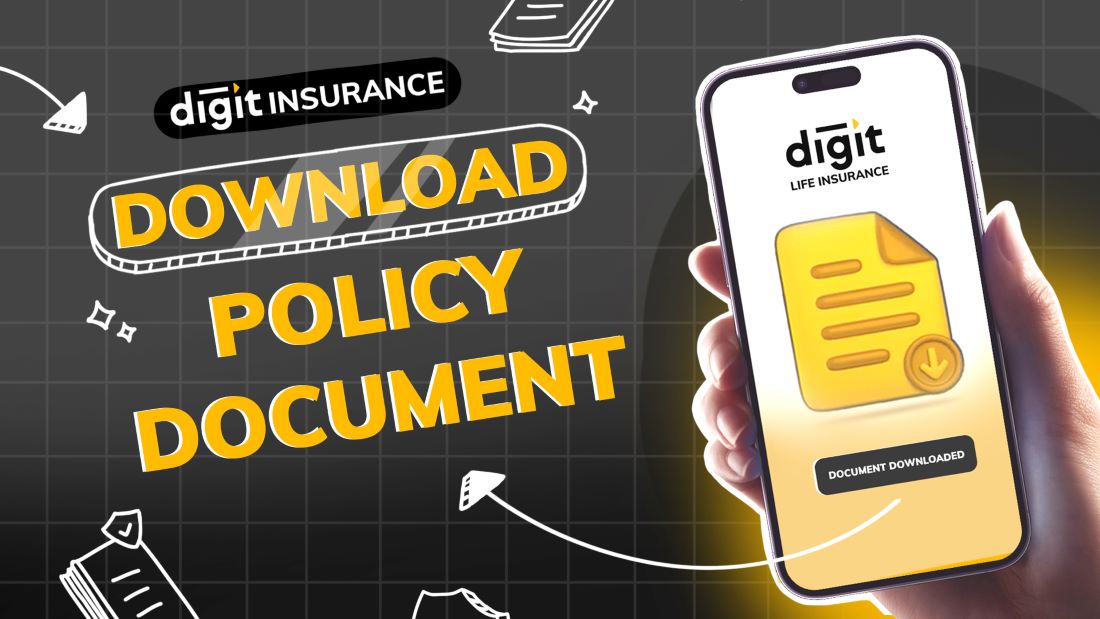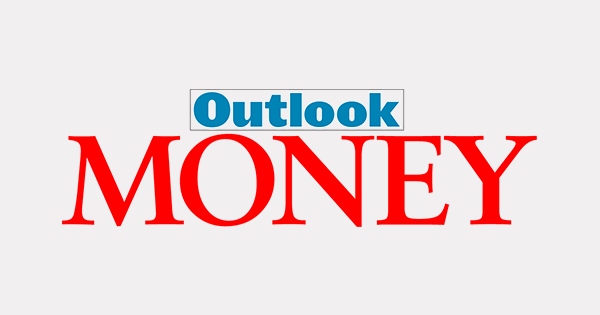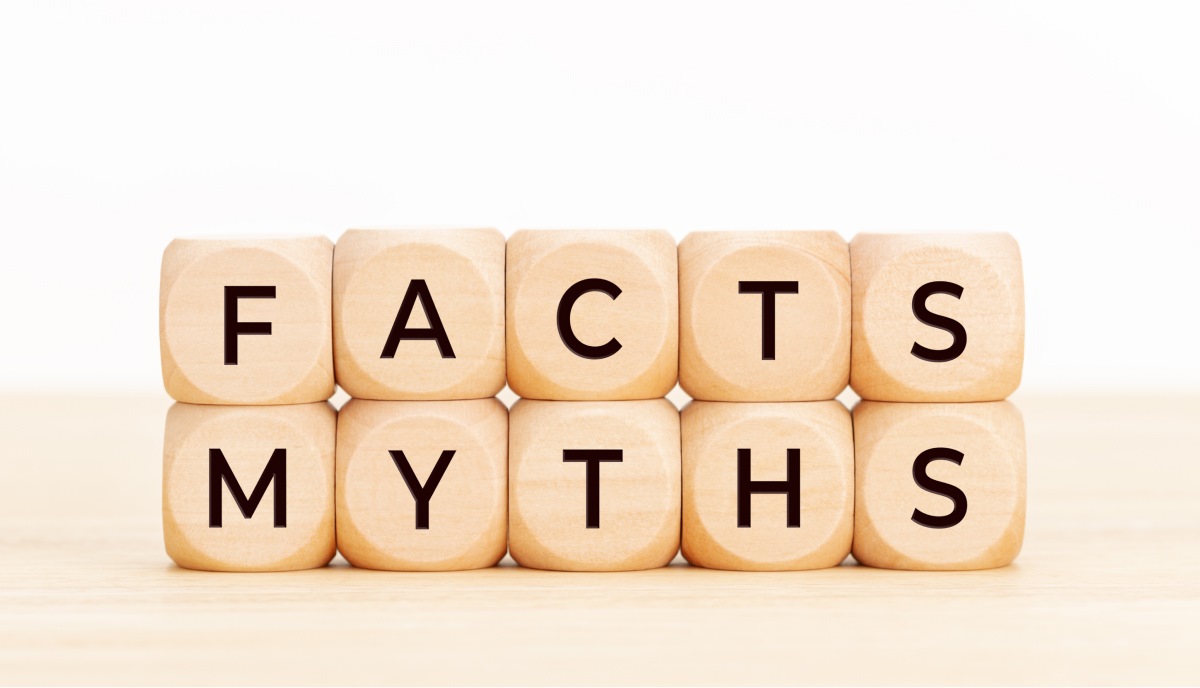Simplifying Life Insurance in India
Buy Life Insurance Policy Online in India
Life insurance is more than just a safety net, it’s a smart financial tool that protects your family while helping you plan for the future. Not only does life insurance provide crucial financial support to your loved ones in case something happens to you, but many plans also offer maturity benefits if you outlive the policy term.
With the dual benefits of security and long-term growth, life insurance provides you with the confidence and peace of mind to face life’s uncertainties, knowing that your family’s needs and your dreams are well taken care of.
What is Life Insurance?
Life insurance is more like a lifelong promise rather than just a temporary support system. Imagine it as a combination of protection and a savings tool bundled together. You consistently pay premiums to the insurance company. In exchange, your loved ones are guaranteed a payout (the death benefit) whenever you pass away.
But that’s not all, most life insurance plans, especially whole life and endowment policies, come with an added benefit - your money doesn’t just sit idle; it grows! These policies accumulate a cash value over time, almost like a savings account that you can dip into or borrow against if needed while you are still alive.
So, while your family gets financial support after your lifetime, you, too, can benefit during your lifetime by accessing this growing fund for primary life goals, emergencies, or retirement needs.
Life Insurance Simplified: What is it and Why it Matters?

Benefits of Life Insurance
Life insurance in India can be very helpful in various financial situations and offers several benefits:
Financial Coverage and Risk Mitigation
Life Insurance provides financial coverage to the insured's family in unforeseen circumstances. Insurance payouts help the family cover educational expenses, marriage expenses, loan payoffs, and other regular expenses.
Payment Frequency Discounts
Life insurance plans let you choose how often you pay the premium, monthly, half-yearly, or yearly. Each option might come with different discounts. Check with the insurance company to see which option saves you the most.
Additional Coverages Through Riders
Some insurance plans also offer the option of riders that provide an additional benefit over and above the standard coverage of the life insurance plan.
Online Payment Discounts
Sometimes, life insurance plans offer discounts if you buy them online. You might also get a discount if you pay through a specific bank.
Act As Collateral for Loan
Some insurance policies provide the option of taking loans against them. Hence, if, under any circumstances, you require a loan, you can use the Life Insurance Policy as collateral for the same.
Tax Benefits
The premiums paid towards the Life Insurance policy are exempt from tax under Section 80(C) of the Income Tax Act. Death or Maturity Benefits, i.e., any proceeds from Life Insurance, are also entirely tax-exempt under Section 10(10)(D) of the Income Tax Act.
Explore Digit Life Insurance Plans Available in India

Digit Glow Term Life Insurance
Suitable for self-employed and young salaried professionals who want smart and early protection.
Choose your sum assured, from ₹25 Lakhs up to ₹1 Crore, to match your financial goals.
0% GST on Premium
No physical forms or waiting, just buy your policy online with PAN and Aadhaar.

Digit Glow Plus Term Life Insurance
Suitable for salaried professionals, entrepreneurs, and high-income earners.
Access up to ₹20 crore sum assured to cover your extensive financial goals and liabilities.
Terminal Illness Benefit is included and covered at no additional cost.
Gain long-term protection up to Age 85 that supports post-retirement responsibilities.
Digit ICON Guaranteed Return Savings Plan
Suitable for Risk-averse investors and individuals planning for long-term financial goals
Guaranteed returns immune to market fluctuations
Life cover + savings
Multiple payout options like lump sum, income, or both
Digit Glow Healthy Term Combo
Suitable for families and individuals who want all-in-one protection
Combines Health and Life Insurance in one plan
Covers Hospitalisation, Critical Illness, Maternity, and Accidental Death
Provides death benefit ensuring your family is financially secured
Cashless Claims and Worldwide Coverage
240
208
Types of Life Insurance Plans & Policies
240
208
Why Choose Digit Life Insurance?
- Transparency Policy Wording - No hidden clauses. No jargon. Just clear terms and real coverage. What you see in your policy is exactly what you get, so there’s no second-guessing when it counts.
- Quick Online Processes - From policy purchase to claim filing, everything happens online; no paperwork, no running around. You get a smooth, fast process backed by human support when you need it.
- Worldwide Claim Support - Your family can still claim online if something happens to you outside India, without running around with fast claim process and support across time zones. T&C*.
- Eligible for NRIs of Indian Origin - NRIs of Indian origin can buy a plan while in India and manage it from anywhere. Premiums can be paid through NRE/NRO accounts, and coverage remains valid globally.
Choose the Right Life Insurance Plan & Understand its Types

Confused about Life Insurance? You’re not alone!
In this video, we break down the various types of life insurance policies available in India, helping you make an informed decision for your future.
Stay Informed, Get Benefited!
When deciding between types of life insurance, consider your financial goals, such as covering specific obligations over a certain period (e.g., until children graduate or a mortgage is paid off), which may make term life insurance appropriate.
Evaluate your budget constraints to determine your ability to sustain higher premiums over the long term, as term life offers affordability, while whole life requires a larger financial commitment. Additionally, if you seek a policy that combines insurance with a savings component, whole life insurance provides this feature.

Sabyasachi Sarkar
Interim CEO & MD
How Much Life Insurance Do You Need?
Calculate Monthly Family Expenses
Determine a comfortable amount your dependents would need per month if you weren’t there.
Evaluate Years of Support Needed
Decide for how many years your family would depend on this support.
Estimate Major Future Costs
List major expenses you want to cover such as children’s education, marriage, home loan payments, etc.
Subtract Savings & Existing Insurance
Subtract current investments, funds, fixed deposits, or other life insurance policies that your family can use.
How Much Life Insurance Cover Do You Need at Different Life Stages?
Early Adulthood (In your 20s)
Buying life insurance early means lower premiums and easier approval. Choose a coverage amount at least 10 times your annual salary plus any outstanding loans. This amount helps your family financially in your absence and accounts for inflation.
Suitable Plans: Term plans, endowment plans, and unit-linked investment plans.
Middle Adulthood (In your 30s)
Ensure your coverage meets your growing family's needs. The coverage amount should be at least 15 times your annual salary plus any outstanding loans, covering your spouse's and children's needs, including future education costs and inflation.
Suitable Plans: Term plans, endowment plans, unit-linked investment plans, and child plans. Start retirement planning with pension plans.
Mature Adulthood (In your 40s)
Adjust your coverage as your financial responsibilities increase. Choose a coverage amount at least 15 - 20 times your annual salary plus any outstanding loans, covering children's college, post-graduation, and marriage expenses.
Suitable Plans: Continue with term plans, endowment plans, pension plans, and unit-linked investment plans.
Retirement (In your 50s and 60s)
Choose a coverage amount at least 10 times your annual salary plus any outstanding loans. Financial responsibilities towards children may decrease, but you still need coverage for any emergency related to your health.
Suitable Plans: Term insurance plans and pension plans like annuity plans. Focus on securing your retirement and ensuring your spouse's financial stability.
How to Buy Life Insurance Policy Online?
The five easy steps to buy life insurance plans are as follows:
Visit Digit Website/App
Visit the official Digit Life Insurance website or app and compare the types of life insurance policy options.
Enter Details
Fill in your personal information, share your lifestyle habits, date of birth, annual income, and mobile number.
Coverage & Payment
Now it’s time to choose your ideal coverage, premium payment methods, and any additional benefits you want!
Payment & KYC
Complete your payment, and then finish the KYC process and fill in your nominee details.
Access Documents
Congratulations! Your policy documents will be sent to your email and WhatsApp. You can also access it 24/7 on the Digit App.
Documents Required to Buy a Life Insurance Policy
When buying a life insurance policy, you must provide several important documents. Here's a list of the key documents typically required:
Identity Proof
Age Proof
Address Proof
Income Proof
Photographs
Medical Reports
Who Should Buy Life Insurance Plans?
The most significant benefit of life insurance is its financial stability to the policyholder's dependents in case of the policyholder's unfortunate demise. Hence, any individual who has financial dependents, such as a spouse, parents, retirees with liabilities, or business people with financial liabilities, must definitely invest in a Life Insurance Plan.
Young Professionals
Young, freshly employed individuals usually think they don't need life insurance since they don't have any dependents. However, this thought might need to be corrected. At a young age, with a healthy body and no liabilities, your premium would be much less than it becomes in the later stages of life. And it remains the same for the entire term.
Newlyweds
After marriage, we begin a new life and establish a new lifestyle. We don’t only have an emotional dependency on each other; there is a financial dependency too. So, while we are still lost in the roses and chocolates, do take time to purchase a gift that will secure your partner’s future life. Buy Life Insurance.
Taxpayers
Life Insurance premiums are exempt from taxation under Section 80C of the Income Tax Act. Insurance payouts are also exempt from taxation, subject to some T&C under Section 10(10D) of the Income Tax Act. Hence, Insurance is a wise investment when it comes to securing life and saving tax.

Retirees
While waiting till the retirement age to buy life insurance is not a very recommended decision, buying Insurance at any life stage only adds to building a corpus. If retirees need life insurance or additional Insurance for any reason, they can always buy life insurance.
Home Loan Borrowers
The purchase of a home is a considerable expense; if done through a Home loan, it’s a huge liability. Unfortunately, if the primary earner passes away, it would be difficult for the dependents to repay the home loan. Life Insurance provides this assurance that the burden of a loan would not come on the family members in such unfortunate circumstances.
Smokers
Smokers are at higher risk of health issues. Life insurance can provide financial protection for their loved ones. It's important to inform the insurer about smoking habits.
Physically Challenged Individuals
They can benefit from life insurance but may need medical tests before purchasing a policy.
People with Pre-existing Medical Conditions
Life insurance can offer financial security, but it is essential to disclose any medical conditions to the insurer.
To determine the necessity of a life insurance policy, it's crucial to first understand the reasons behind needing one. This involves planning their financial goals and requirements, ensuring they align with their long-term objectives. Next, it's important to assess how much premium they can afford, taking into account their current financial situation and budget constraints.
Finally, calculating the appropriate life cover based on their financial obligations and future needs will help ensure that their loved ones are adequately protected in the event of unforeseen circumstances. This comprehensive approach ensures that the life insurance policy chosen is both affordable and sufficient to meet their needs.

Ashok Manwani
VP, Life Insurance Products
Complimentary Wellness Benefits for Digit Life Customers
With your Digit Life Insurance, you also get exclusive access to a wide range of wellness perks, making taking care of yourself easier and more affordable:
Unlimited 24×7 Teleconsultations with General Physicians
Get expert medical advice anytime, anywhere.
Mental Health Consultation & Services
Speak to top specialists in Mental Health, Women’s Health, Diet & Nutrition, and more, at flat 50%!
Diagnostic Tests & Health Check-Ups
Specialist Teleconsultations
Speak to top specialists in Mental Health, Women’s Health, Diet & Nutrition, and more, at flat 50%!
Women's Health Care Programs
Pregnancy Care Programs, access to Mum Support Group, PCOS/PCOD Care Programs, Maternity Support and much more!
Physiotherapy Sessions
Stress and Pain relief covered with exclusive discounts on Physiotherapy consultation and session bookings.
Dental Consultation Offers
Avail unlimited, free dental consultations and exclusive discounts on dental treatments.
Sexual Wellness
Chronic Care Support Programs
Personalized assistance for long-term health conditions.
Digit Life Insurance in the Spotlight
Which Life Insurance Premium Payment Option Is Right for You?

💡 Not sure how to pay for your life insurance policy? You're not alone. In this video, Ashok Manwani, VP of Products at Digit Life Insurance, explains the three main premium payment options and helps you determine which one best fits your lifestyle and financial situation.
The three main premium payment options are as follows:
1. Single Pay: One-time payment, ideal for retirees
2. Limited Pay: Pay for a few years, get long-term cover (great for business owners).
3. Regular Pay: Spread across the entire policy term (best for salaried professionals)
Factors Affecting Life Insurance Premium
Here are the most common seven factors that affect a Life Insurance premium:
Medical History
Age
Current Health Condition
Term
Occupation
Lifestyle Habits
BMI
What is the Consequence of Not Paying my Life Insurance Premium on Time?
Why Does Full Disclosure of your Life Insurance Policy Matter?

If you’re buying life insurance, it’s critical to understand why full disclosure matters in life insurance. Why telling the whole truth, especially about your health and occupation, isn’t just a formality. It’s the foundation of trust between you and your insurer.
Life insurance works on a principle called “utmost good faith”, where the insurance company expects you to disclose all relevant facts honestly. Whether it’s a past medical condition, a hazardous job, or lifestyle habits, what you declare in your insurance proposal form directly affects your coverage and claim eligibility.
What is a Life Insurance Rider & It's Types Explained
A rider can be an extension to your base plan, with an additional premium that provides additional coverage for various situations. Below are some of the significant riders in life insurance.
Accidental Death Benefit Rider
The Accidental Death Benefit Rider provides extra coverage for dependents in the event of the policyholder's accidental death. It pays out the sum assured within 120 to 180 days after the accident. This rider addresses the financial burden of medical expenses and personal loss, making it a crucial addition to a primary insurance policy.
Critical Illness Rider
The Critical Illness Rider offers financial support if the policyholder is diagnosed with critical illnesses, such as cancer or heart disease. It helps cover treatment and household expenses, acting as an income replacement to ensure that the policyholder's illness does not disrupt family finances.
Accidental Total and Permanent Disability Benefit Rider
If the policyholder suffers a partial or permanent disability due to an accident, this rider provides financial assistance to those who can no longer work. It pays a specific portion of the sum assured regularly over several years, which helps the family manage finances during difficult times.
Waiver of Premium Rider
Waiver of Premium Rider ensures that the policy remains active if the policyholder cannot pay premiums due to a disability or critical illness. Premiums are waived, allowing coverage to continue until maturity, at which point benefits are paid to the nominee.
Terminal Illness Rider
Terminal Illness Rider, also known as the Accelerated Death Benefit Rider, guarantees that the sum assured is paid upon the diagnosis of a terminal illness. This alleviates financial stress during treatment and allows the policyholder to arrange finances, medical support, or travel before their passing.
Income Benefit Rider
The Income Benefit Rider offers monthly payouts to the family if the policyholder dies during the policy term, serving as an income substitute. This helps the family manage ongoing expenses and ensures they are not financially strained in the absence of the policyholder.
Hospicare Benefit Rider
This rider provides additional coverage for hospital stays, paying a fixed amount per day for hospitalization, an extra amount for ICU stays, and a lump sum for surgeries. It helps mitigate the financial stress associated with medical expenses during hospitalization.
Riders can be added to the life insurance plan at a small additional cost. They enhance the coverage and provide much-needed financial support during challenging times.
For instance, the accidental death and disablement rider ensures financial stability in the event of accidental death or disability. The critical illness rider offers a lump-sum payout if diagnosed with severe illnesses like cancer or heart disease. Lastly, the waiver of premium rider keeps the policy active even if premiums cannot be paid due to disability or illness. These riders offer tailored protection to meet unique needs.

Ashok Manwani
VP, Life Insurance Products
How to Download Life Insurance Policy Document With Digit App?
Need a copy of your life insurance policy document? You can download it easily through the Digit App by following these simple steps:

Login Your Account
Visit the Digit website or app and click on ‘Login’ at the top-right corner. Enter your registered mobile number and verify with OTP.
Visit ‘Active Policies’
Once logged in, navigate to the Active/My Policies section. Here, you can check the policy number, end date & start date.
Download the Policy
Done! You can save, share, print or email the policy for future reference anytime, anywhere.

How to File a Life Insurance Claim?
- Notify the Insurance Company: Notify Digit Life Insurance about the policyholder's death and initiate the claim process by contacting via helpline at 1800-296-2626 or emailing lifeclaims@godigit.com
- Submit Required Documents: Provide necessary documents such as the death certificate, policy document and identity proof.
- Receive Claim Acknowledgement: After submitting the documents, you will receive an auto-generated ticket number for your claim.
- Claim Settlement: The insurance company will review the claim. Once the claim is approved, the company will process the payout to the beneficiary's account.
Documents Required to Get Your Life Insurance Claim Amount
You must provide several important documents to claim your life insurance amount. Here's a list of the key documents typically required:
Claim Form
Death Certificate
Policy Document
Identity Proof of Nominee
Address Proof of the Nominee
Medical Reports (if applicable)
Bank Account Details
Additional Documents
How Efficiently Digit Life Insurance Settles Claims?
At Digit Life Insurance, settling claims quickly and fairly is not just a goal—it’s a commitment. To ensure our customers and their families are supported when they need us most, we focus on two key things: speed and transparency.
1. End-to-End Turnaround Time (TAT)
- This is the total time taken, from the day we first get the death claim to the day we complete it.
- How is It Calculated: We subtract the date the claim was registered from the date it was closed.
- End-to-End TAT = Claim Closing Date – Claim Registration Date
2. Last Document Received (LDR) TAT
- Sometimes, claims take time because we’re waiting for all the required documents. This number indicates how quickly we process a claim once we receive the final document from the claimant.
- How is It Calculated: We subtract the date we received the last required document from the claim closing date.
- LDR TAT = Claim Closing Date – Date Last Document Received
Types of Life Insurance Claims
Life insurance claims can be categorised by the nature of the event and the policy terms. Understanding these helps ensure a smoother claim process.
1. Death Claim
In the unfortunate event of the policyholder's demise during the policy tenure, the payout is paid to the nominee, as agreed in the policy terms. This payout is known as the Death Benefit. While the documents might differ across insurance providers, the most common documents required to file a death claim are the Filled form, the Original Policy Bond or Contract, the Policyholder's Death Certificate, and Proof of Identity as the Nominee.
2. Maturity Claim
Maturity Benefit is the amount the Life Insured receives if they survive the policy term and the premiums are all paid. Additionally, the policy must have the maturity benefit as a component because the Maturity Benefit is absent in the case of Life Insurance. The Maturity Claim Form and Original Policy Bonds are usually required to avail of the maturity benefit. However, they may differ from one insurer to the other.
You May Also Like to Read:
What Payout Options are Available for Life Insurance Plans?
Life Insurance Plans offer flexible payout options to suit different policyholders' needs. Here are the four payout options available:
99.53% Claim Settlement Ratio For Digit’s Life Insurance in FY 2024-25
When life takes an unexpected turn, every second matters. With a 99.53% Claim Settlement Ratio (CSR), Digit Life Insurance stands as a pillar of trust and reliability. This isn’t just a statistic; it’s a promise to our policyholders.
Every claim tells a story. Whether it was a salaried parent overcoming loss, a child’s future hanging in the balance, or a spouse seeking stability, we acted fast to bring peace of mind to grieving families.
That’s why we are committed to settling genuine claims swiftly, transparently, and with compassion, ensuring that your loved ones receive the support they need when it matters most.
₹2.88 Billion Worth Claims Paid in FY 2024-25
At Digit, we don’t just talk about protecting families; we actually do it. In the last financial year, we paid ₹2.88 billion to families who lost a loved one. That’s a big jump from ₹351.52 million a few years ago, showing how much we have grown and how seriously we take our promise.
Every payout represents a family supported, a future safeguarded, and a promise fulfilled. We make sure claims are settled quickly and clearly, with zero confusion, so families don’t have to worry during tough times.
15,000+ Claims Settled in FY 2024-25
Solvency Ratio for Digit's Life Insurance in FY 2024-25 is 3.85
At Digit, being financially strong isn’t just a goal; it’s how we earn your trust. Our solvency ratio has grown from 2.07 to 3.85, which means we are more than ready to keep every promise we make.
This number shows we have more than enough funds to pay claims and support families, even in tough times. In fact, our ratio is nearly double the required limit, giving you extra peace of mind.
Because when you choose life insurance, you are not just buying protection; you are trusting us with your family’s future. And we take that seriously.
Essential Tips to Bust Common Life Insurance Myths and Make Smarter Decisions
Do’s & Don’ts of Life Insurance Policy
Do’s of Life Insurance Policy
Here are some important things to do when it comes to life insurance policies:
Buy Early: Purchasing life insurance at a younger age can get you more extensive coverage at lower premiums, ensuring early financial protection for your loved ones.
Read the Policy Document Carefully: Take the time to read and understand the policy document thoroughly. This helps you make informed decisions and know exactly what is covered.
Consider Adding Riders: Adding riders to your policy can enhance your coverage and provide additional protection in times of need.
Compare Policies: Compare different policies and insurance companies to find the best coverage, premium, and customer service. Look at factors like claim settlement ratio, assets under management, and the number of lives covered.
Learn About Different Types of Policies: Educate yourself about the various types of life insurance policies available to choose the one that best suits your needs.
Don’ts of Life Insurance Policy
When it comes to life insurance policies, here are the important things you should avoid:
Don't Provide False Information: Avoid giving false or inaccurate information during the application process, leading to claim rejections and policy cancellations.
Don't Miss Premium Payments: Ensure timely premium payments to avoid lapses in your coverage.
Don't Delay Purchasing Insurance: Don't procrastinate on buying life insurance. Delaying this decision can leave your loved ones financially vulnerable in case of an unfortunate event.
Am I Still Eligible for Life Insurance Coverage if I Have a Serious Health Concern?

Can I Add My Spouse or Children to my Life Insurance Policy?
Absolutely! Adding your spouse or children to your life insurance policy is a game-changer. It boosts financial security while keeping premiums affordable. Imagine securing your family’s future in a few clicks, with no paperwork, no stress!
Adding a spouse ensures your partner stays protected, and adding a child guarantees coverage without hefty standalone policies. One policy, total family protection! Don’t wait, because life moves fast, but smart protection moves faster.

Can a Housewife Get Life Insurance Without Income?
Yes, a housewife can get life insurance even without an income! At Digit Life, we recognise the priceless value of homemakers and offer coverage based on their spouse’s earnings. A housewife’s role is irreplaceable, and if something were to happen, the financial burden on the family could be immense.
We provide coverage of up to 50-60% of the earning spouse’s policy. So, if you have ever thought, “Do I really need life insurance?” The answer is a resounding YES!
Why Should I Buy Another Life Insurance Policy When I Already Have One Policy From My Employer?
It's great if you have Life Coverage from your employer. However, in most cases, you might need more than your employer's policy to cover your family's needs, which may end if you change jobs.
Analyse your financial cover requirements and decide if you need another Insurance cover. In such cases, Term Plans, due to their affordability, can be a good choice as an addition.

What Happens to your Life Insurance Policy if you Move Abroad?
Relocating to another country does not mean leaving your life insurance behind. We at Digit offer policies with global coverage. The BIG question: Will your family still get the payout?
If you relocate, inform your insurer immediately to avoid surprises. Don’t risk leaving your loved ones unprotected. Review your policy before you pack your bags, upgrade if needed, and ensure your financial safety net moves with you.
Your insurance should be as borderless as your dreams. Secure it before you go!
Is Life Insurance the Smartest Investment for a Self Employed?
If you’re self-employed, your income can be disrupted the moment you are not able to work. What happens to your family then? Life insurance becomes essential in this scenario, transforming uncertainty into peace of mind. It safeguards your family’s future by covering business debts and supporting living expenses, including your child’s education.
For a self-employed person, life insurance isn’t optional; it's survival. Successful entrepreneurs not only build wealth but also protect it. And the best part? Life insurance can also be a tax-efficient investment, making sure your money works for you while securing your family's future.

What are the Benefits of Having Life Insurance for Business Owners?
A thriving business today needs a strong foundation for tomorrow. Life insurance isn’t just a backup plan - it’s a game-changer for business owners. It ensures your family and employees are financially secure, covers debts, and funds a seamless succession plan.
With Digit Life Insurance, your business legacy remains intact, even in your absence. Enjoy tax benefits, peace of mind, and the confidence that your hard work will continue to thrive.
Terminologies Related to Life Insurance Policy
Policyholder
The Policyholder is the person who buys the insurance and pays regular premiums.
Coverage
The amount of money the policyholder can get from the insurance.
Life Assured
Nominee
The person who receives the death benefit or sum assured in case of an unfortunate demise of the policyholder. The policyholder chooses the nominee when taking the policy; however, they can always be changed during the policy term.
Sum Assured
This is the amount of money a nominee receives in case of the policyholder's demise, and it is one of the major factors determining a policy's premium.
Policy Term
The Policy Term is the period during which a policy is active. An insurance policy's benefits and life cover are valid during this period, which differs across policies.
Insurer
The insurer is the insurance provider who offers life insurance plans and handles claims.
Insured
The person who is covered by the insurance policy.
Insurability
Factors affecting a person’s health or life expectancy make them more or less likely to get injured or sick.
Premium
Premium is the amount of money you pay to the insurance company in return for the insurance. It can be paid in various modes: annual, half-yearly, or even monthly.
Death Benefit
The total amount an insurance provider gives to the nominee in case of demise of the life assured. This mostly equals the Sum Assured; however, it might be more when riders are added.
Add-on Benefits (Riders)
Add-on benefits or Riders are additional coverages on your policy that cover specific conditions like critical illness, accidental death, etc. They come at an additional cost over and above your standard premium.
Claim
In the case of the life assured's demise, the nominee should file a claim with the insurance company. It is an intimation to the insurance company about the unfortunate event and the demand for insurance coverage payment.
Maturity Date
When the insurance policy ends and any benefits are paid out.
Maturity Claim
The amount the policyholder receives when the policy ends if it includes a maturity benefit.
Surrender Value
The money the policyholder gets if they end the policy before the maturity date.
Vesting Age
The age at which the policyholder starts receiving regular payouts from an insurance-cum-pension plan.
Beneficiary
The person or entity designated to receive the death benefit from a life insurance policy.
Grace Period
The period after the premium due date, during which the policyholder can still make a payment without losing coverage.
Lapse
The termination of a policy due to non-payment of premiums.
Underwriting
The process by which an insurance company evaluates the risk of insuring a person and determines the premium.
Free Look Period
The policyholder can review the policy terms and cancel the policy without penalty.
Conversion Option
A feature allowing the policyholder to convert a term policy into a permanent one without undergoing a medical exam.
Reinstatement
Restoring a lapsed policy by paying the overdue premiums and meeting other requirements.

Interesting Digit Life Stories and Milestones from FY 2024-25
- Record-Breaking Days: Talk about a busy day! We issued over 1.7 lakh policies on September 28, 2024. Our systems were operational even at late hours, issuing over 1,100 policies at 1:08 AM on December 7, 2024.
- Our Growing Family: The average age for people joining the Digit Life insurance family in FY24-25 was 34 years old, a slight nudge up from 33 years previously.
- Premium Extremes: Talk about range! We saw an annual premium as high as ₹35 lakh for our Digit Icon product, while we also issued policies for as little as ₹143 for a 2-year Digit Life Group Micro Term Insurance.
- More Women Protected: We saw a 1.2% increase in female lives covered this FY, with women now making up 49.89% of our total covered lives, up from 48.77% last year
- Flexible Premiums: We've got options! Some folks opted for monthly premiums as low as ₹50 per month, while others chose the monthly premium category for a policy with an annual premium of ₹2.3 lakh (roughly ₹19,000/month).
FAQs about Life Insurance Policy in India
What is the consequence of not paying my insurance premium on time?
What do I receive on the maturity of my Life Insurance Policy?
What does "Fully Paid Up" mean on a Permanent Life Insurance Policy?
Do I need to pay tax on my maturity benefit?
What are the different options available for me to pay the premium?
Here are the most common methods that you can choose to pay your premium on time:
- Collection agents accept cash or cheques and provide receipts. You can also visit the insurance company’s office to pay in person.
- Online payments through the insurer’s official website are convenient, or you can visit Franchise/premium payment points that also accept premiums.
- Electronic Clearance Service (ECS) allows automatic debits from your account.
- Some insurers offer payment options via IVR and ATM or use Post Dated Cheques (PDCs) to ensure timely payments.
What if I do not want my Life Insurance Policy once I have taken it?
You have several options if you no longer want your life insurance policy. Term Plans generally come with a 15-day Free-Look period, during which you can cancel and receive a refund. Once the Free-Look period is over, you can opt to surrender the policy. Surrendering the policy means you will receive the cash value minus any applicable surrender fees.
You can also stop paying premiums, and the policy will lapse. Alternatively, you can convert your policy to a different type of term or assign it to another person.
On maturity, can a new policy be availed at the rate of the old premium?
Am I still eligible for Life Insurance Coverage if I have a serious health concern?
Can I buy Life Insurance for anyone I wish to?
You can buy Life Insurance for someone other than you, but the main factor here is "Insurable Interest" along with the insured's consent.
Insurable Interest means a person's interest in something like property or another individual wherein any loss or harm to this property or individual would affect the person.
An insurable interest relationship is usually between:
- Spouses and Children
- Business Owner and Key Employees
- A creditor and a Borrower
Why should I buy another Life Insurance Policy when I already have one policy from my employer?
What is Mortgage Insurance?
If I stop smoking today, or maybe 6 months before taking a Life Insurance Policy, will I get a Non-Smoker rate?
What is the best kind of Life Insurance Policy?
What is the Contestability Period in Insurance?
What Is Indexed Universal Life Insurance (IUL)?
What is Cash Value Life Insurance and How does it work?
What are the details of the life insurance policy?
What is the benefit of life insurance?
The primary benefit of life insurance is financial protection for your loved ones in the event of your passing. Life insurance provides a death benefit, which can be used to pay funeral expenses, cover outstanding debts and loans, replace lost income, fund education expenses, supplement retirement income, pay estate taxes, and support business succession planning.
Life insurance can also offer living benefits such as cash value accumulation, tax-free growth, and access to funds through loans or withdrawals. Some policies offer terminal or critical illness benefits, providing financial support during difficult times.
Who needs a life insurance policy?
Which type of life insurance is best?
What age is best to get life insurance?
Is life insurance money refundable?
Life insurance money can be refundable under certain circumstances:
Return of Premium (ROP) Life Insurance is a policy that refunds all your premiums. If you pass away during the term, your beneficiaries receive the death benefit, and if you are still alive when the term ends, the insurer will refund all the premiums you have paid (tax-free).
Cancellation of Term Life Insurance is when the company must refund your payments if you cancel a term life insurance policy within 30 days of purchasing it.

































